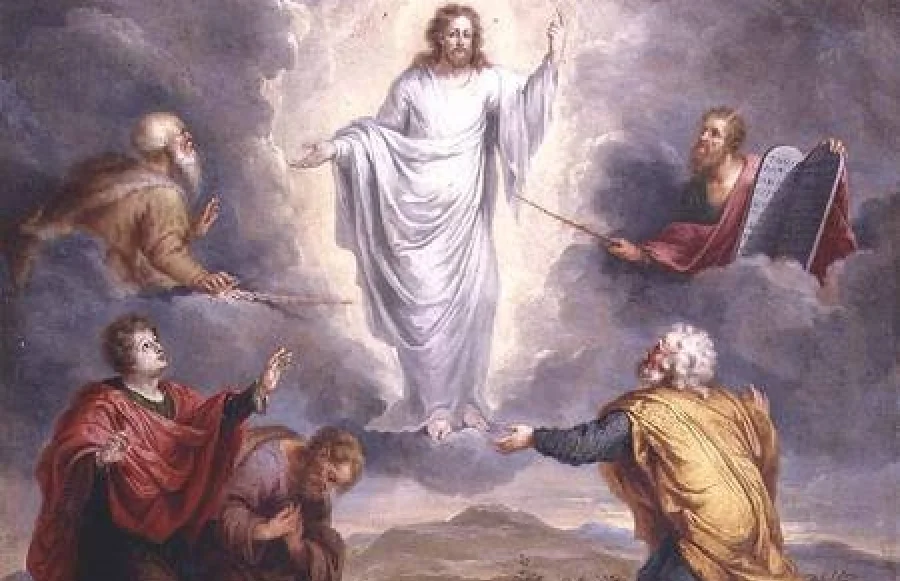Truth. We’re bombarded with information from every corner today. We’ve been told on good authority that there is a great deal of “fake news” out there. We’re told to be discerning in what we digest. We’re supposed to “seek the truth” and disregard the lies. This is not always so easy to do. We live in what is called the postmodern age, which is just a term that means there is no absolute truth because the truth is whatever you want it to be. Unless you are a Christian, that is. Society tells us we’re foolish for that. Last Thursday the Southern Poverty Law Center called the Christian organization The Alliance Defending Freedom a “hate group.” The ADF’s mission is to defend religious freedom. Apparently, if you defend the first amendment, you are now guilty of hate speech! We can see right through that “fake news.”
The Transfiguration of Our Lord
It is good that we are here! With that, we can agree with Peter. Peter, James, and John saw a pretty amazing thing in their mountaintop experience. Here at this boundary in Jesus’ life and ministry, we catch a glimpse of the glory that will be Jesus’, and ultimately our own glory which we gain through Him. What must the disciples have thought, as they awoke?
Sexegesima (60 days before Easter) Sunday: Our Lavish God
Our text this morning is Jesus’ parable of the sower, focusing on Luke eight verse five: “A sower went out to sow his seed.” This is our text. The parable of the sower has been called the parable of parables. Again, it is one of the few Jesus explains to His disciples. Great crowds continue to follow Jesus, but many follow Him for selfish reasons. Jesus begins a series of teachings in the form of stories to which the people can relate, but it is not always obvious to them (or to us) what Jesus is really saying. With this parable, Jesus sets the stage for interpreting all the parables that follow. Jesus preaches the parable to the crowd, but the meaning of the parable is for the disciples – and for us. Today, Jesus talks about the sower and the various types of ground the seed falls upon.
Epiphany V: Weeds Among Wheat
Our text for this morning is the Gospel reading where Jesus tells the parable of the weeds among wheat focusing on verses twenty-eight and twenty-nine:
“’An enemy has done this!’ The slaves said to him, ‘Do you want us, then, to go and gather them up?’ But he said, ‘No; for while you are gathering the weeds, you may uproot the wheat with them. Allow both to grow together until the harvest; and in the time of the harvest I will say to the reapers, “First gather up the weeds and bind them in bundles to burn them up; but gather the wheat into my barn.”’”
Apparently, even in the 1800’s, there was a problem of a jealous farmer sneaking into his neighbor’s field by night and sowing tares among the wheat. The penalty for doing this and getting caught is severe. Tares are a type of weed that, when it’s sprouting, looks just like the good grain. A farmer can tell them apart, just like a shepherd knows which are his sheep.
Epiphany III: The Centurion's Special Ingredient
Our lives are like a recipe. Sometimes, they come out pretty good. Sometimes, they burn on the stove. Sometimes, they look alright, but they taste just awful! Sometimes they need “a little something” and other times they need a lot of help. When we have a great need in our lives, we want a magic ingredient injected into our recipe to make it better. We have a great need to be free of the paralyzing power of sin. This morning we heard about the centurion who asked Jesus for help for his paralyzed and suffering servant.





